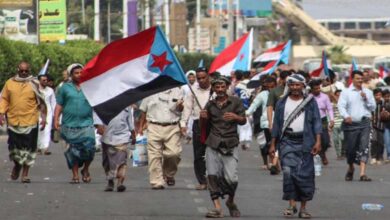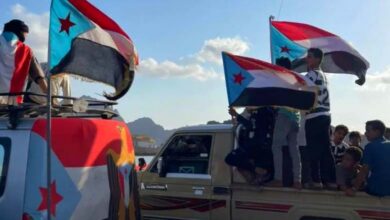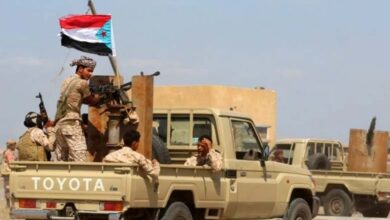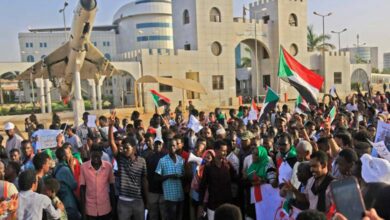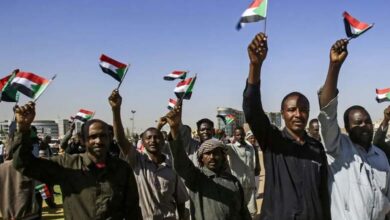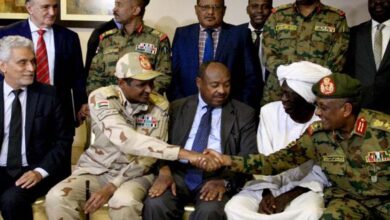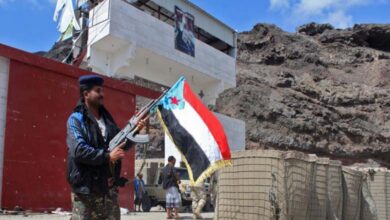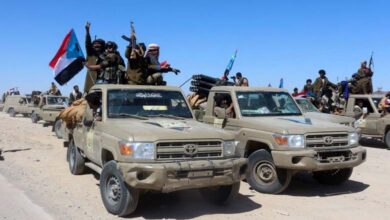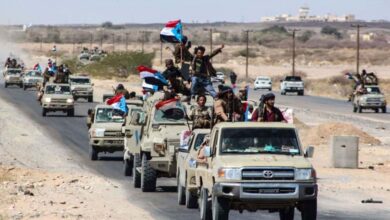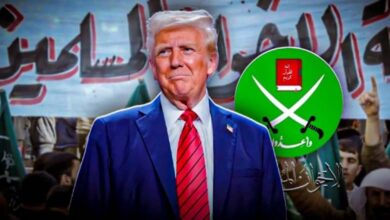Muslim Brotherhood Elements Fight Alongside the Sudanese Army
The Sudanese Army: a Tool in the Hands of the Muslim Brotherhood to Return to Power at Any Cost and at the Expense of Sudan and Its People
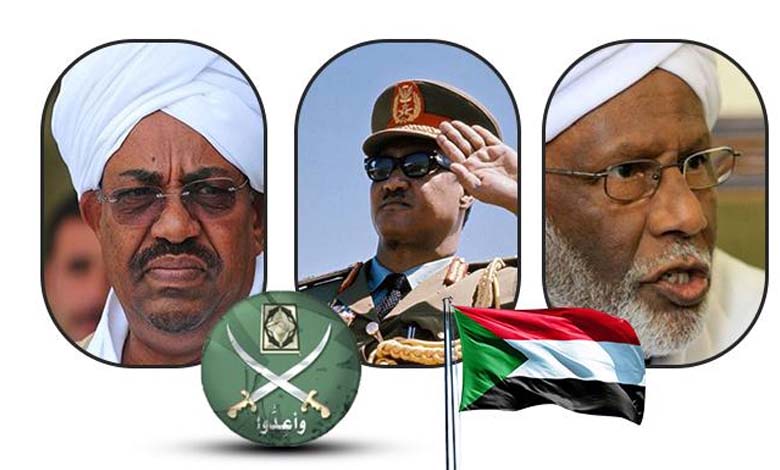
The intensive deployment of “Special Forces,” part of the Sudanese army, during battles against the Rapid Support Forces (RSF), has sparked controversy over the presence of Islamic Movement affiliates within the Sudanese military.
Accusations have escalated against the Islamic Movement, known for being a religious reference during former President Omar al-Bashir‘s regime, suggesting its control over the decision-making within the Sudanese military, according to Sudanese political organizations.
The Forces of Freedom and Change, a civilian alliance that led the country before the military seized power on October 25, 2021, accuses the Islamic Movement of igniting the current war in Sudan. These allegations are denied by the movement.
Othman Abdel Jalil, a leader in the Forces of Freedom and Change, claims that “elements of the former regime control decision-making within the army.” He argues that their refusal to negotiate to resolve the crisis reflects on the military’s positions during the Jeddah talks with the Rapid Support Forces.
With the conflict between the army and the Rapid Support Forces erupting on April 15, 2023, a Saudi-backed initiative, supported by the United States, aimed to extinguish the war in Sudan quickly. The Intergovernmental Authority on Development (IGAD) also launched an initiative to halt the fighting. In July 2023, Egypt hosted a conference for neighboring countries to discuss ways to resolve the crisis, but these initiatives failed to end the war.
The “Bura’a ibn Malik” battalion, led by Musab Abu Zeid, joined the fighting alongside the army shortly after the war broke out. Abu Zeid, in a Facebook post, mentioned that the battalion received training from the Sudanese army under its constitution and laws. This was a response to accusations linking the battalion to the Sudanese Islamic Movement.
On the other hand, Professor of Political Science in Sudanese universities, Montaser Rizqallah, sees the participation of the “Bura’a ibn Malik” battalion and others in the fighting alongside the army as natural. He argues that the violations of the Rapid Support Forces exceeded expectations, turning their war into a confrontation with civilians.
Rizqallah said, “I don’t see anything preventing elements of the former regime from participating in the fighting alongside the army. They are Sudanese citizens, and they have the right to defend their country.”
He played down the significance of voices claiming “the control of elements of the former regime over decisions within the Sudanese army,” noting that most Sudanese political parties have cells and members within the army. Therefore, he finds it illogical to solely blame the Islamic Movement.
He also pointed out that the undeniable historical fact is that the Communist Party controlled the decision-making within the army after the 1969 coup. Similarly, the Umma Party dominated decision-making during the democratic period, and the same applies to the Democratic Unionist Party.
Political commentator Aziz Eddine Al Mansour believes that the participation of the “Bura’a ibn Malik” brigade in combat alongside the army is natural as long as it adheres to the army’s positions and strict directives.
Al Mansour stated that recently, the “Bura’a ibn Malik” brigade has been making detailed military decisions without consulting the army’s leadership. There are also widespread rumors that they organize marches without any prior coordination with the army.
He emphasized that elements of the former regime are seeking to regain power by regaining control of the army, which they lost after the regime’s fall in April 2019.
Al Mansour noted that elements of the former regime infiltrated the army’s Special Forces and dominated them to the extent that they often resemble forces affiliated with a political faction rather than an official state army.
He added, “There is a massive media machine aimed at highlighting the achievements of the ‘Bura’a ibn Malik’ brigade and the Special Forces, unlike the military achievements of the army, which do not receive the necessary media attention, even from the Sudanese army‘s moral guidance authority.”
Al Mansour pointed out that this raises further suspicions about the undeclared objectives of the participation of Islamic Movement members in combat alongside the army, suggesting that General Al-Burhan may have made the decision to open recruitment camps for civilians to provide a moral justification for the “Buraa ibn Malik” brigade’s participation.
In the same context, a leader of the Forces for Freedom and Change stated that members of the former regime had engaged in combat alongside the army before the possibility of civilian participation in combat was officially announced.
“All these pieces of evidence indicate that the participation of members of the former regime in military operations aims to regain the power they lost after the Sudanese revolution,” he added.
It is worth noting that General Al-Burhan visited the commander of the “Bura’a ibn Malik” brigade, Musab Abu Zeid, in the hospital as he was recovering from injuries sustained in combat alongside the Sudanese army, which fueled the debate about the relationship between the Islamic Movement and the army.
General Al-Burhan had called in June for “capable citizens to bear arms and join the nearest military unit to contribute to the defense of the homeland.”
We attempted to obtain a comment from the official spokesperson of the Sudanese army, Colonel Nabil Abdullah, but we received no response until the writing of this report.
Statements from army leaders regarding the participation or control of Islamists in decision-making within the military institution vary.
While General Al-Burhan denied during a speech at the Flamingo military base in August that the Islamic Movement controlled the army, his deputy, General Yasser al-Atta, stated in January, “The truth must be told, there are large groups of Islamists fighting with us, and there are youth from the ‘Ghadeen’ group and others.”
Thus, the fate of negotiations remains uncertain, with increasing voices calling for a military solution to the conflict. Some experts believe these voices are “produced in private rooms to achieve political goals,” while others suggest they represent “the genuine refusal of the people to reconcile with the Rapid Support Forces due to their involvement in violations.”
Abdul Jalil pointed out that “elements of the former regime engaged in incitement against any attempt to resolve the crisis through peaceful means, fearing being excluded from the political process, as was the case before the war, by order of the revolution.”
He added, “Media rooms affiliated with the former regime intensified a campaign to discredit General al-Burhan after the leak of news of his meetings with the deputy commander of the Rapid Support Forces, Abdul Rahim Daglo, in Manama.”
After the leak of the meetings, an intensive campaign was conducted on social media to discredit al-Burhan, which prevented the conclusion of the talks that were being held in utmost secrecy.
According to the Forces for Freedom and Change, al-Burhan and Abdul Rahim Daglo met in Manama twice, on January 6 and 20, before al-Burhan unexpectedly missed the third meeting, causing the talks to collapse.
No denial or comment has been issued by the Sudanese army on these pieces of information, while al-Burhan has repeatedly criticized the Rapid Support Forces in speeches to army groups, referring to them as “politically supported forces” and stating that there is “no foreign solution to Sudan’s problem.”
Al Mansour emphasized that “the participation of members of the former regime in combat alongside the army has affected the leaders’ decisions regarding negotiations, leading to a retreat from the trend favoring a peaceful solution that prevailed in the early months of the war.”
He added, “The control of the former regime over the army’s decisions will lead to one of two possibilities: either blocking any peace agreement or obstructing and thwarting the implementation of the agreement once concluded.”
“I do not rule out that the ‘Bura’a ibn Malik’ brigade or the ‘Al Bunyan Al Marsous’ brigade will demand to participate as a third party in any peace negotiations, and in this case, negotiations could succeed,” he continued.
“But I do not expect the negotiation sponsors to respond to these demands because the general atmosphere within the negotiations tends toward excluding the former regime from any future political process,” he concluded.
On the other hand, Rizqallah believes that there is irrational exaggeration when discussing the relationship between the former regime and current combat or decision-making within the army. Some portray members of the former regime as having complete control over the levers of power, which is untrue.
“During the transitional period following the fall of al-Bashir‘s regime, all members of the military Sovereign Council, including Al Burhan and Al Katbi, continued to direct harsh criticisms towards the leaders of the former regime, indicating that there is no grip from the Islamic Movement on the army,” he added.
The war in Sudan has claimed the lives of at least 13,000 people, according to estimates from the Armed Conflict Location & Event Data Project (ACLED). It has also caused the displacement and refuge of approximately 8 million people, making it “the world’s largest crisis of displaced persons,” according to the United Nations.
About 18 million people out of a total population of 48 million in Sudan suffer from “acute hunger,” and over 5 million people face emergency levels of hunger, according to UN agencies active in humanitarian work.
UN Secretary-General António Guterres called on Thursday for the international community to mobilize and do everything possible to end the war in Sudan.
Guterres stated that there is no military solution to the conflict between the forces supporting the two generals, emphasizing that continuing the fighting “will not achieve any solution, so we must stop it as soon as possible.”


